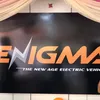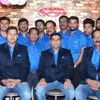Hero Electric: how a family business built India’s largest EV two-wheeler brand
After finding success with Hero Cycles and Hero MotoCorp, the Munjal family started Hero Electric in 2007. Today, it has captured 65 percent of the market share in the Indian electric two-wheeler market and claims to have sold 50,000 electric bikes and scooters last year.
In the 1950s, India was still coming to terms with its new-found freedom. Foundations were being laid for various industries. One of the most significant sectors was the manufacturing of two-wheelers. This is where entrepreneur OP Munjal came into the picture.
Munjal left Kamalia village, which is now in Pakistan, and went to Amritsar with his three brothers to start a bicycle spare parts business.
This set the wheels in motion for the formation of the brand which is now synonymous with two-wheelers in India: Hero.
Initially, the brothers set up Hero Cycles in Ludhiana in 1956. The business, which started small, went on to become the largest single bicycle maker in the world.
Another Hero entity set up by them - Hero MotoCorp (formerly Hero Honda) - won over the motorcycle and scooter market in India. The company became the largest two-wheeler manufacturer in the world capturing 46 percent of India’s two-wheeler market.
Looking beyond their success with bicycles and Internal Combustion Engine (ICE) vehicles, the family-run business saw a big opportunity in the electric two-wheeler segment.
Their market research gave them confidence that electric two-wheeler adoption in India will be possible in the long term. They started developing an electric two-wheeler business as early as 2000, and in 2007, they formally launched Hero Electric as a separate company.
According to an estimate, by 2019, Hero Electric captured 65 percent market share in the Indian electric two-wheeler market. The company claims to have sold 50,000 vehicles last year.

Naveen Munjal, Managing Director, Hero Electric
Hero Electric is headquartered in Gurugram, Haryana, and has a manufacturing plant in Ludhiana, Punjab. It has around 300 employees.
Hero Electric comes under the Hero Eco Group, a multi-company, multi-product, and multi-location enterprise with diversified interests in EVs, exports, bicycles, healthcare, and real estate. Vijay Munjal, a promotor of Hero Cycles and Hero Group, is now the Chairman of Hero Eco Group.
In an exclusive interview with SMBStory, Naveen Munjal, Managing Director, Hero Electric, explains the company’s recipe for success and discusses the status of EV adoption in India.
Edited excerpts from the interview:
SMBStory [SMBS]: What problem area or gap in the market did the group want to address when Hero Electric was started?
Naveen Munjal [NM]: We studied automobile markets abroad and identified opportunities for EVs in the world of gas-guzzling, gas-emitting ICE vehicles. EVs are highly efficient due to their low number of moving parts and can help tackle problems like noise pollution, air pollution, and rising fuel prices.
We also did our research that took into consideration multiple factors that influence an EV buying decision. We found that one of the biggest reasons for people being apprehensive about EVs was the high capital cost compared to ICE.
We wanted to tackle that and prove that we can offer high-quality electric-powered alternatives that cost only a smidge over ICE counterparts, and cost much less in the long run.
SMBS: What are the challenges for EV manufacturing and adoption?
NM: As an industry, we still have not achieved economies of scale. Getting the localisation levels up is still an issue since we do need to import a few critical components like batteries from other countries.
What also is a handicap is that India still does not have substantial investments into new-age batteries like lithium-ion due to low scale at this point. These add to the cost of an EV which increases the upfront cost even further.
The other critical issue is infrastructure. Given the plans of the government for a majority of mobility to go electric by 2030, both the public and the private sectors need to come together to make a robust infrastructure so that we can see substantial adoption of EVs in the country.
We have tackled the issue of charging infrastructure with our products by equipping our entire range with high-quality li-ion portable batteries that can be charged via a 3-pin domestic socket. This means you can charge the battery anywhere, anytime.
Another challenge is to range anxiety. Setting guidelines and putting defined policies in place can help foster the adoption of EVs in India.
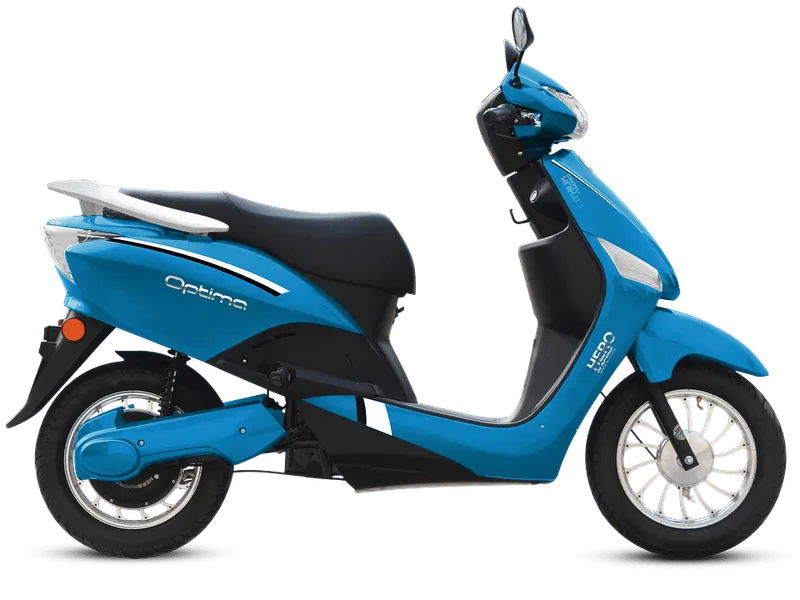
Hero Electric's Optima e-bike
SMBS: What is your business model? What are some of your unique business strategies?
NM: Since there is no precedence of any successful model in the EV industry in India, we’ve had to experiment and work on numerous strategies.
For instance, we have a three-day trial and test promotion scheme, a first of its kind test of our vehicles by customers where they can return the vehicle within three days of purchase if they don’t enjoy the experience for any reason.
We introduced portable batteries which can be charged from a wall outlet. We’re now in the process of creating a dense charging infrastructure for our customers. We have already installed 650 such stations and are targetting around 6,000 to be installed this year.
Now, due to the lockdown, we have been promoting safe health and safety for our customers and have not only been delivering vehicles to them at home but also servicing their vehicles for them at their homes.
Hero Electric has also been training roadside mechanics to be able to fix minor problems that come up in the EVs. Customers need not go to our dealers for repair -- it can be handled by these mechanics at any of our Preferred Garage Owners (PGO) outlets.
SMBS: What is the USP of your products? What is their pricing?
NM: The blend between affordable pricing and performance is an appealing aspect of our products across each category. Our product price range starts at Rs 39,990 with flash lead-acid batteries, and goes all the way up to Rs 79,990 for Nyx Lithium-Ion. The majority of our sales volume is in the price range of Rs 50,000 to Rs 65,000.
While we keep our prices low in order to penetrate the market better, our main focus is towards exceptional customer experiences. We have five vehicle platforms with 14 variants that we offer to customers currently, and are refreshing our product range as the market is evolving.
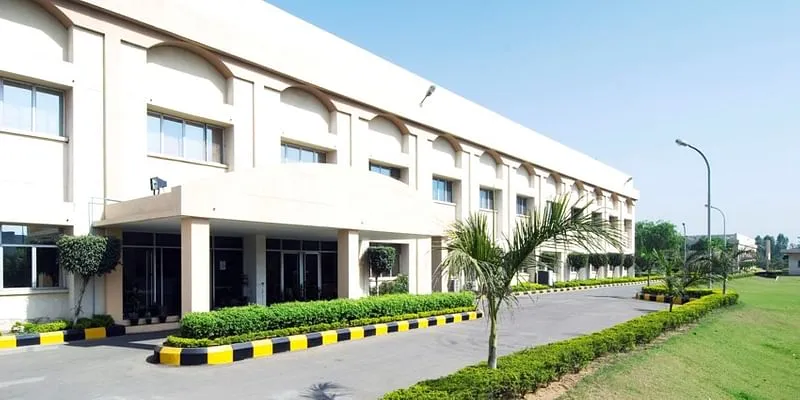
The Hero Electric plant in Ludhiana
SMBS: Who is your target audience?
NM: Given the number and type of products we have across various segments, our target audience is wide, to say the least. From a college-goer and a performance enthusiast to an eco-conscious customer or even a senior citizen, our approach towards the development of the products was done keeping family users in mind.
We also lay a lot of emphasis on B2B consumers which could be different segments – large campuses, food and grocery delivery companies, e-commerce delivery companies, courier and postal services, and shared mobility services. This is an important segment for us, and we have a separate team and product range to cater to this segment.
SMBS: What are the major challenges the company faces?
NM: As a company whose goal is to bring change and disrupt the market, a number of challenges automatically arise. Getting certifications, policies, subsidies, OEMs, and loans become difficult. Additionally, convincing people, raising awareness, and building their faith in the product by changing their mindset on electric mobility is no small task.
Getting people to try EV is the biggest challenge and that happens only when there is awareness. We have slowly and steadily brought about the awareness and I am happy to report that the anxiety associated with EVs has come down significantly.
Change is always difficult and a slow process but all stakeholders, be it our customers, suppliers, workers, dealers, team members, customers, and industry members, have seen us build this market painstakingly over the past decade.
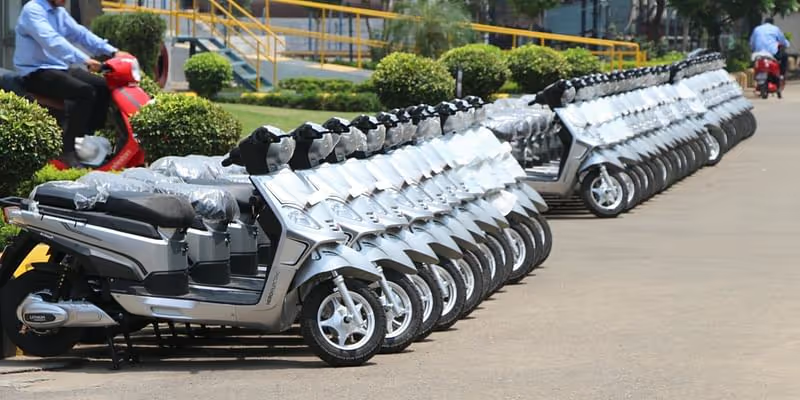
E-bikes at the Hero Electric plant
SMBS: Who are your competitors? How is the company staying ahead of companies like Ather and Yulu?
NM: We welcome competition. We see it as a good thing. It forces us to do our best, to keep innovating, and to keep improving our products, customer experiences, etc. More companies talking about EV space and more brands entering this category give us an indication that the inflection point has come.
I would be scared and get worried if companies shy away from this industry rather than gravitate towards it.
More companies entering this space creates more noise in the market and more awareness in the minds of the potential customers. Customers begin their research on which company’s product to buy, and most of the time, if we have a dealer in their close vicinity, they tend to gravitate towards our products.
While we constantly monitor our competition on what they’re doing, we remain focussed on our long and short-term goals and strive to achieve them. Our experience in this industry, spanning over a decade, gives us an edge which is not easily replicable. Experience cannot be taught or learned, it has to be experienced.
SMBS: In the wake of COVID-19, what are your future plans for Hero Electric?
NM: Presently, we’ve been growing substantially. In good years, growth is at 80 to 100 percent over the previous year. In bad years, it is 30 to 40 percent over the previous year. We expect this trend to continue in the foreseeable future as well.
Even this year, which is a year of chaos and disruption both in terms of health and economy, we expect to grow over last year, which would be a feat by itself.
In terms of new products, we showcased some of these at the 2020 Auto Expo and the response was highly encouraging. We were on schedule to introduce them this year. However, due to COVID-19, the plans have been pushed.
I believe EVs will benefit post the current crisis. I foresee a large number of public transport users drifting towards personal mobility due to social distancing issues associated with public transport.
We have seen in the past that in economies recovering from downturns, consumers, especially in the case of automobiles, generally end up gravitating towards entry-level vehicles where the initial purchase price is low and so is the TCO (Total Cost of Ownership). Besides TCO, which is low in the case of EVs, another important factor is the ease of use and convenience of an EV.
Further, service will undergo a paradigm shift and ‘at home’ service will become more prevalent in the days to come as it is easy to implement for EVs. At Hero Electric, we’ve been providing at-home services for customers, and we’ve been rapidly expanding it to other parts of the country.
Edited by Javed Gaihlot




